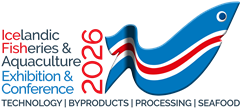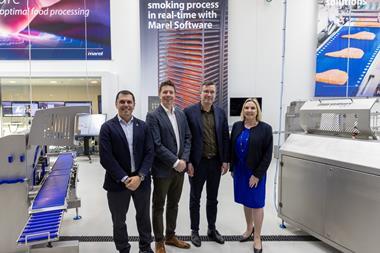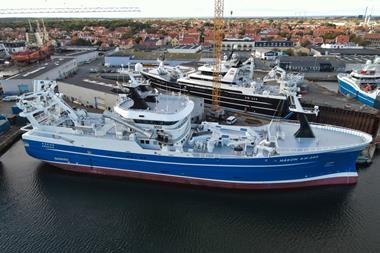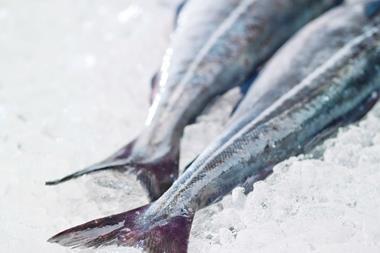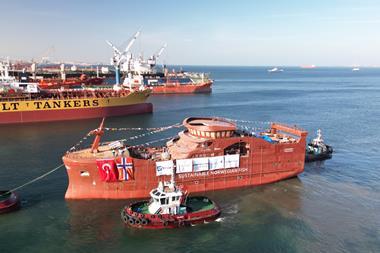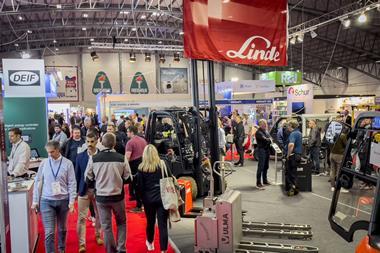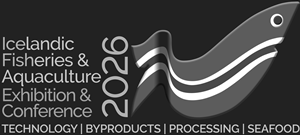After the opening the Minister of Fisheries and Agriculture fired a 200 year old canon outside the exhibition hall and declared the exhibition officially open.
The opening ceremony was attended by many distinguished guests, exhibitors and members of the press.
Marianne Rasmussen, Events Director at organiser Mercator Media thanked guests for their continued support of the exhibition. She reflected on the challenging times for the Icelandic and global economy during the previous IceFish exhibition in 2011, but noted that for Iceland this meant that the fishing industry was firmly back in focus.
“Three years down the line we are returning to an Icelandic fishing industry that is investing in no less than 12 new vessels to a value of €194m”, she said. “Iceland continues to lead the world in the development of fishing technology, to ensure the long term sustainability of the industry.”
Ms Rasmussen told guests that IceFish this year has been a sell-out, with a record 250 stands and 500 exhibitors. This year, first time exhibitors from China, Germany, Japan, Turkey and USA will exhibit during the three day exhibition, and pre-registered exhibitors come from five continents.
She also extended her thanks to vital partners of the exhibition, Kópavogur City Council and the Icelandic Ministry of Fisheries and Agriculture.
In her closing remarks, Ms Rasmussen said that contacts and discussions from this Icelandic Fisheries Exhibition will play a key role in shaping the commercial fishing sector of the future.
Mayor of Kópavogur, Ármann Ólafsson pointed out that this edition of the Icelandic Fisheries Exhibition is bigger than ever and told guests that he is proud to host the event in Kópavogur. He pointed out the importance of the fishing industry in Iceland, as its most fundamental source of income, and noted that the development of the industry continues to affect the evolution of Icelandic society to this day.
Minister of Fisheries and Agriculture, Sigurður Ingi Jóhannsson made the important point that even though companies compete for markets, cooperation and constructive talks are important. We should all share the same goals, he said, firstly to ultilise the fish stocks in a sustainable way, and secondly to increase profits of the fisheries industry in different countries throughout the world. Parts of the fish that were once considered waste are now considered important, a change that has been driven by innovation. Iceland's goal should be to double the value of each fish caught.
“I believe the exhibition will give us a glimpse into that future,” he said. “The newest inventions and technology breakthroughs of today will increase the value of the fisheries sector of the future.”
The Icelandic Fisheries Exhibition is being held from 25-27 September at Smárinn, Kópavogur, Iceland.
